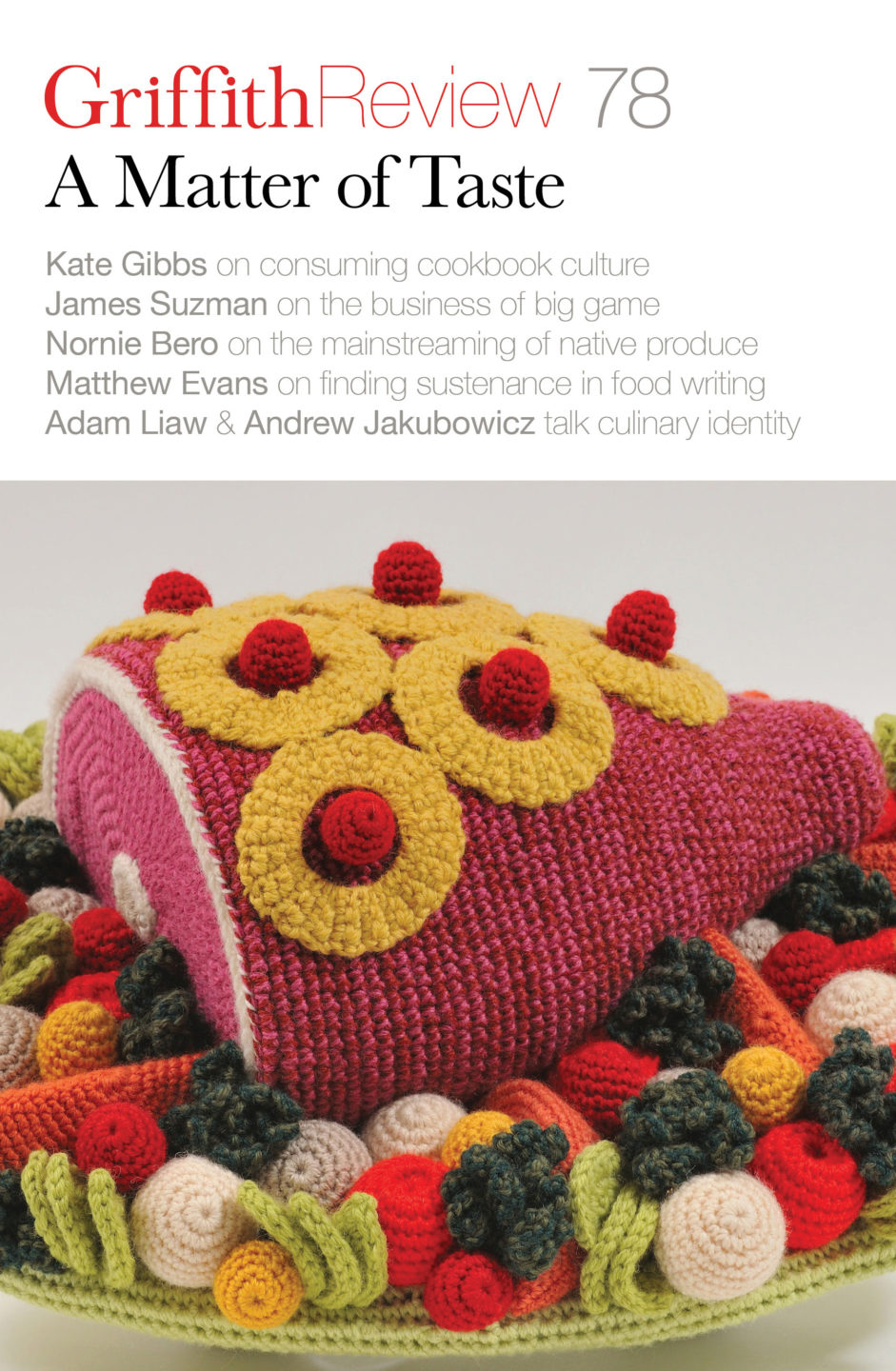Featured in

- Published 20221101
- ISBN: 978-1-922212-74-0
- Extent: 264pp
- Paperback (234 x 153mm), eBook


Already a subscriber? Sign in here
If you are an educator or student wishing to access content for study purposes please contact us at griffithreview@griffith.edu.au
Share article
About the author

James Suzman
James Suzman is an anthropologist who has been documenting the often traumatic encounter between the remnants of Southern Africa’s last Khoisan hunter-gatherer societies and...
More from this edition

Fallen apples
EssayFrom the twelfth century in Western Europe, the apple, scientific name malus, became the forerunner for the unidentified forbidden fruit from the Garden of Eden, probably because its symbolism was already well established in Norse and Greek mythology, and the wordplay was irresistible: malus derives from the Latin word malum, which meant both evil or wrongdoing and fruit plucked from a tree.

Tastemakers
IntroductionI’m still pleasantly mystified by our obsession with food – our need to talk about it, remember it, photograph it and analyse it, to eat our feelings and compare our lives to buffets and boxes of chocolates.

Witches’ brew
EssayAnthropologist Solomon Katz proposed in the 1980s the intriguing ‘beer before bread’ theory, which suggested that early agriculturalists were driven to farming not by their wholesome desire for crusty loaves but by their lust for that other staple grain product: beer.